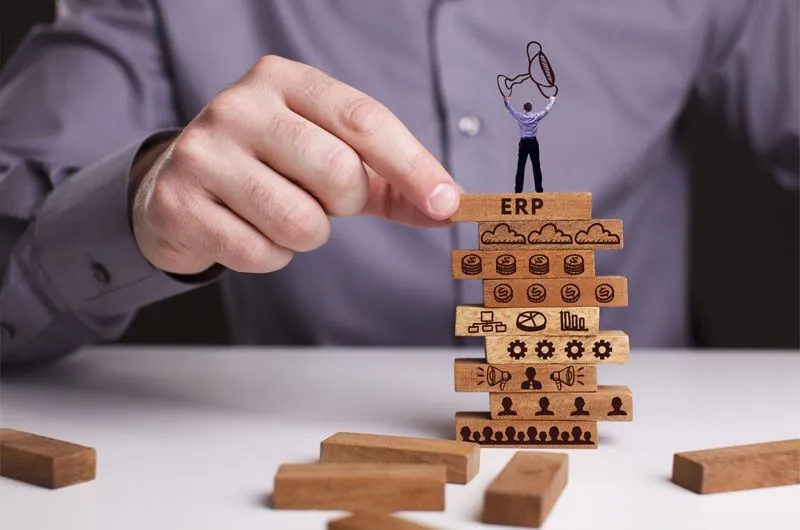
Let’s see How ERP Works. Integration and planning are two of the most critical aspect of every business. You certainly do not want to be a business that sells a product online while there is no physical inventory available at the backed. This is where Enterprise Resource Planning offers you a little breathing space. A general term amid the businesses of today, ERP is a vital need of a smooth business process. When customized efficiently, an ERP solution helps businesses in reaching their objective, goals, and gain profitability.
As a small company, managing various processes seems easy; however, as the size of the business grows, it becomes tougher to take hold of every running process. A slight mistake in planning or communication can cause a hefty loss, which no company is ready to welcome. ERP is the rescuer in such situations as it works effectively towards organizing your business processes and facilitate accurate, smoother, and faster communication between the employees and various departments.
Enterprise Resource Planning software is a set of tools that are dedicated to data collection from various departments and functions of any business and integrate it at a single platform, making it available for the multiple entities as per their needs and critical requirements. In other words, ERP creates a depository of information, which is accessible by various departments, to offer accurate information at the right time.
ERP serves to the requirement of various departments including HR, Finance, and Warehouse, supply, production, and more. In modern technological times, most of the businesses have already implemented a unique software to cater to the requirements of every department. However, this software has limited offerings, and they do not provide integrated data from other departments. The ERP software paves the gap of information transfer between different departments and thus contribute towards higher efficiency and productivity.
ERP software is one-stop access of data for critical business processes as well as department, if not all. The software work on data integration from various business processes, applications and departments to offer composite depository. The existing ERP software is available with multiple modules that include:
ERP, however, can offer many other solutions as per the specific business needs. Ask the vendor for customization, and you will be provided a solution tailor-made to suit your business structure.
ERP also offers automation to a business. It provides vast information to businesses through a unified platform, which, otherwise won’t be available. With the right information available for use, a company makes a more informed decision, directly improving its performance. ERP is also known as back-office software because it makes all the tasks at the back-end more accurate and swift. Hands-on information and timely reporting system make it very favourable for a business to compete and grow.
ERP brings a lot of benefits to businesses ranging from cost reduction to savings of resources such as time, efforts and more. When you avail a customized ERP solution from a reliable vendor, you can take advantage of its efficiency and boost your business process. Hope this article helped you in understanding the working process of ERP solutions. If yes, do not miss the opportunity to invest in a suitable ERP solution and gain a competitive edge




